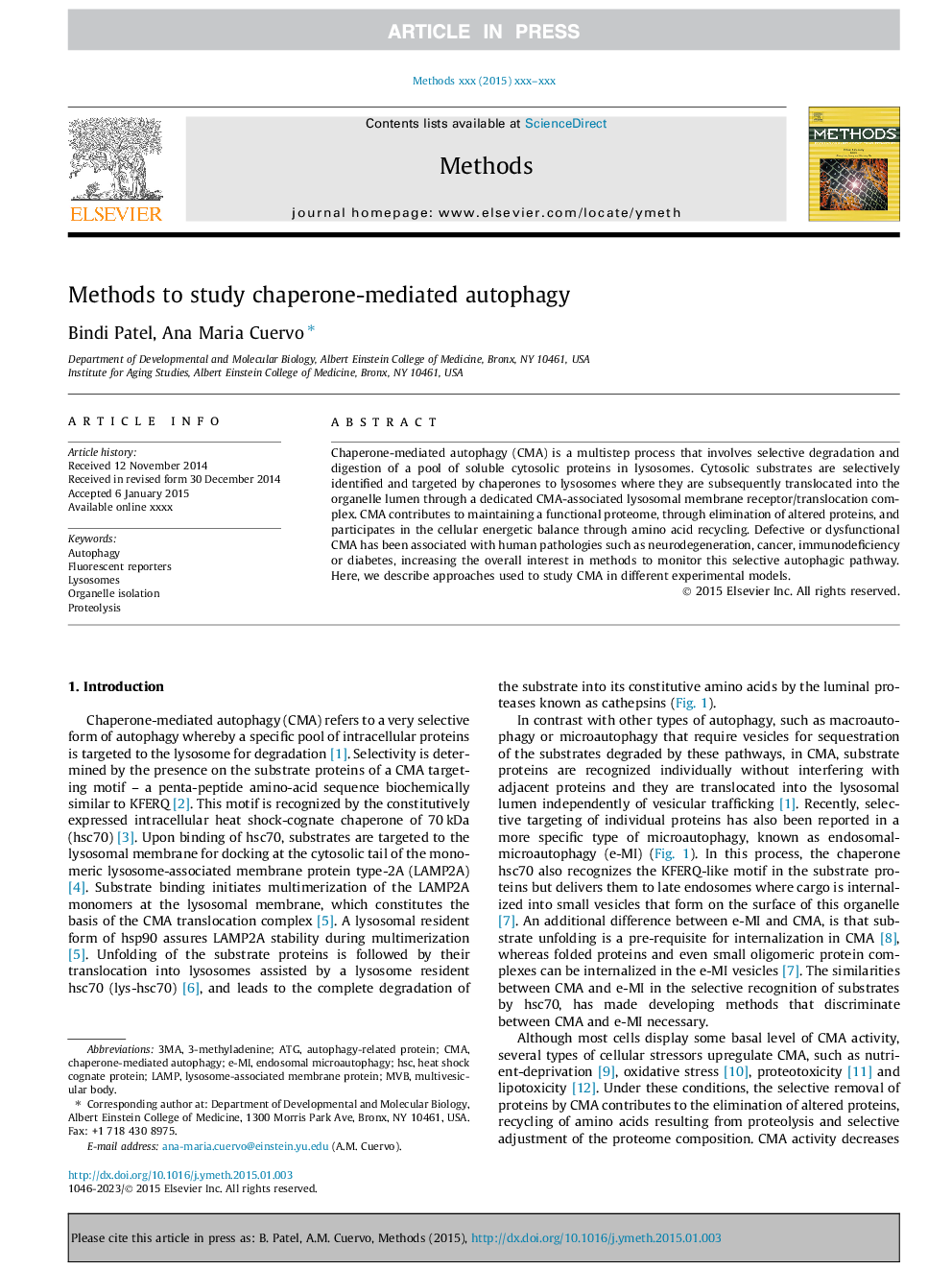| Article ID | Journal | Published Year | Pages | File Type |
|---|---|---|---|---|
| 8340686 | Methods | 2015 | 8 Pages |
Abstract
Chaperone-mediated autophagy (CMA) is a multistep process that involves selective degradation and digestion of a pool of soluble cytosolic proteins in lysosomes. Cytosolic substrates are selectively identified and targeted by chaperones to lysosomes where they are subsequently translocated into the organelle lumen through a dedicated CMA-associated lysosomal membrane receptor/translocation complex. CMA contributes to maintaining a functional proteome, through elimination of altered proteins, and participates in the cellular energetic balance through amino acid recycling. Defective or dysfunctional CMA has been associated with human pathologies such as neurodegeneration, cancer, immunodeficiency or diabetes, increasing the overall interest in methods to monitor this selective autophagic pathway. Here, we describe approaches used to study CMA in different experimental models.
Keywords
Related Topics
Life Sciences
Biochemistry, Genetics and Molecular Biology
Biochemistry
Authors
Bindi Patel, Ana Maria Cuervo,
